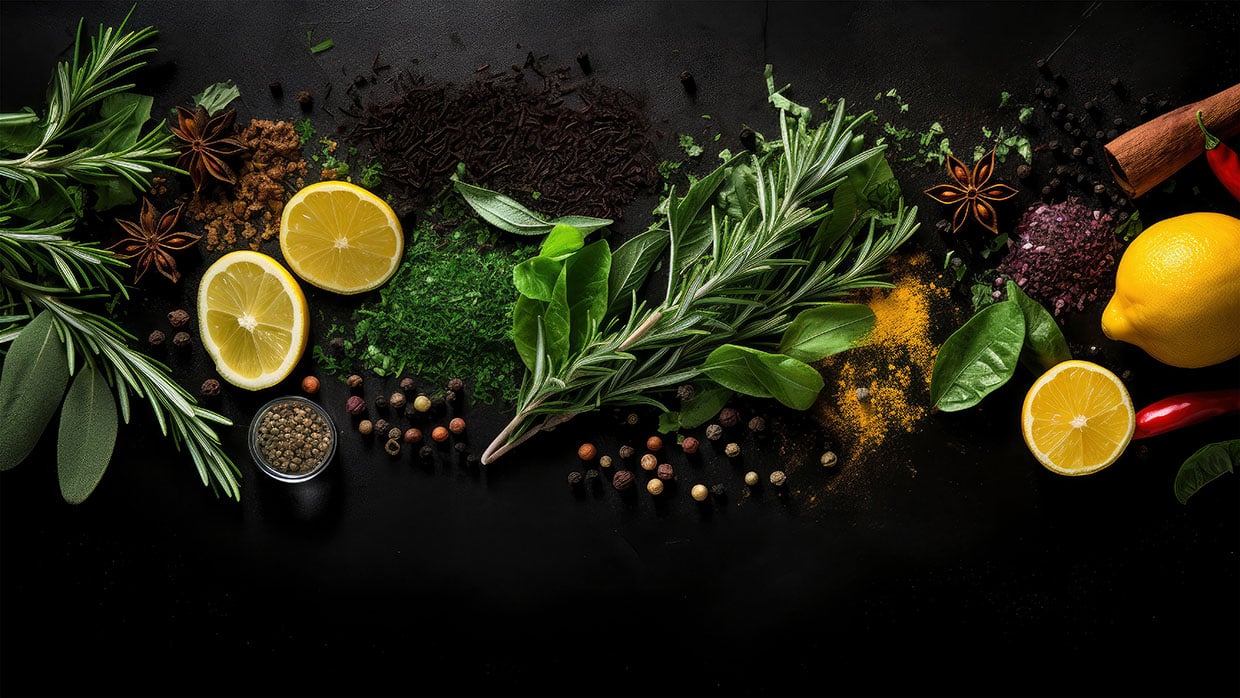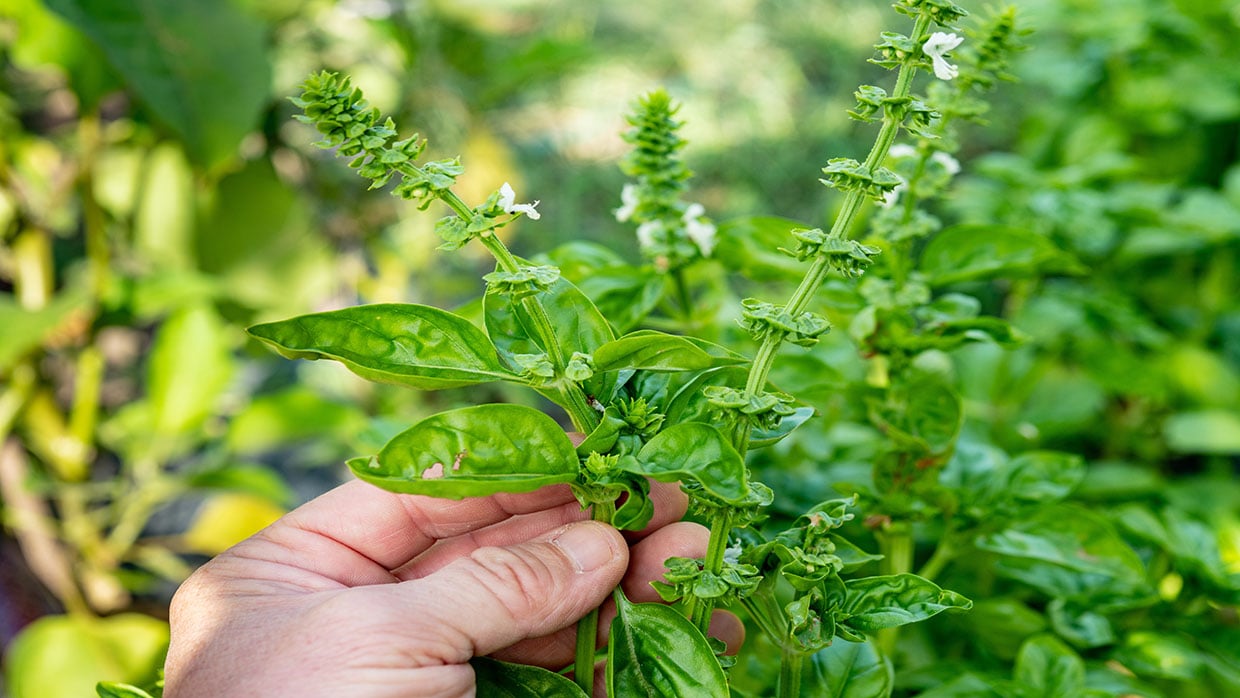Spice Up Sustainability: Adding Flavour to Sustainable Dishes

Sustainability starts in the kitchen, where making environmentally conscious food choices doesn’t have to compromise flavour. By using spices and herbs strategically, you can create rich, memorable dishes for sustainable dining with minimal impact on the environment. As identified in the Sustainable Food Barometer, spices and dried herbs last a very long time, are relatively inexpensive, and most importantly, pack a big punch of flavour for meals consumed by Canadian citizens.
Choose Locally Sourced and Dried Herbs
Locally sourced herbs like thyme, oregano, and basil not only offer robust and delicious flavours, but also reduce the carbon footprint associated with transportation. Dried herbs are a particularly sustainable option, as they have a longer shelf life, therefore reducing food waste. Though traditional drying methods can impact nutritional content, often-times, health-promoting minerals and antioxidants are preserved. With useful techniques such as crushing dried herbs between your fingers before adding them to your dish to release essential oils, rotating fresh and dried herbs in dishes can maintain a higher amount of nutritional value on average.
Incorporate Climate-Friendly Spices
Not only are spices such as coriander, cumin, and turmeric some of the tastiest options available, but they are also relatively climate-friendly in terms of water and land usage when compared to salt-intensive seasonings and processed flavour enhancers. These spices can add warmth and complexity, and a touch of international flavour to plant-based meals, enhancing soups, stews, and grain dishes with rich and aromatic layers of taste.
Adding Seaweed for Umami Flavour
Seaweed, such as kelp or nori, is a nutrient-dense and eco-friendly option for seasoning. It not only brings a savory and umami punch to dishes, but also benefits the environment through its cultivation, which can aid in absorbing carbon emissions and improving water quality. Sprinkle it on rice bowls, salads, or mix it into soups for added depth!

Pepper Alternatives and Bold Seasoning
Consider using smoked paprika or chili flakes as alternatives to traditional black pepper. These spices offer bold flavours with unique profiles and can often be more sustainable in terms of production practices. Experimenting with these alternatives opens new dimensions of taste while keeping costs down and sustainability in focus.
The Bottom Line
Enhancing the flavours of sustainable dishes is all about selecting the right seasonings. By incorporating locally sourced herbs, climate-friendly spices, and umami-rich ingredients like seaweed, Canadians can create meals that are both delicious and environmentally conscious. Let your seasoning choices reflect your commitment to sustainability… all while tantalizing your taste beds!